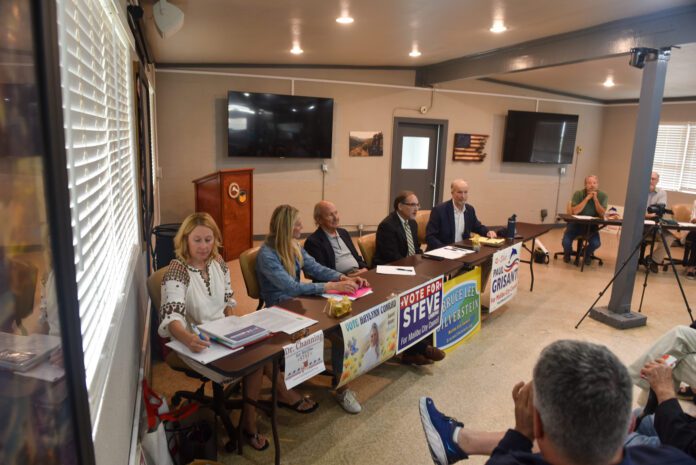
Three incumbents and two newcomers answer questions concerning local issues
Three incumbents and two first-time candidates for Malibu City Council took questions at the Eastern Malibu Candidates Forum on Saturday, Sept. 14. Despite the far-off location at Fire Camp 8, every seat was filled with roughly 60 voters interested in how each candidate stood on issues ranging across such topics as Pacific Coast Highway, development, civility, and processes at City Hall.
The candidates include Channing Frykmann, Haylynn Conrad, Steve Uhring, Bruce Silverstein, and Paul Grisanti.
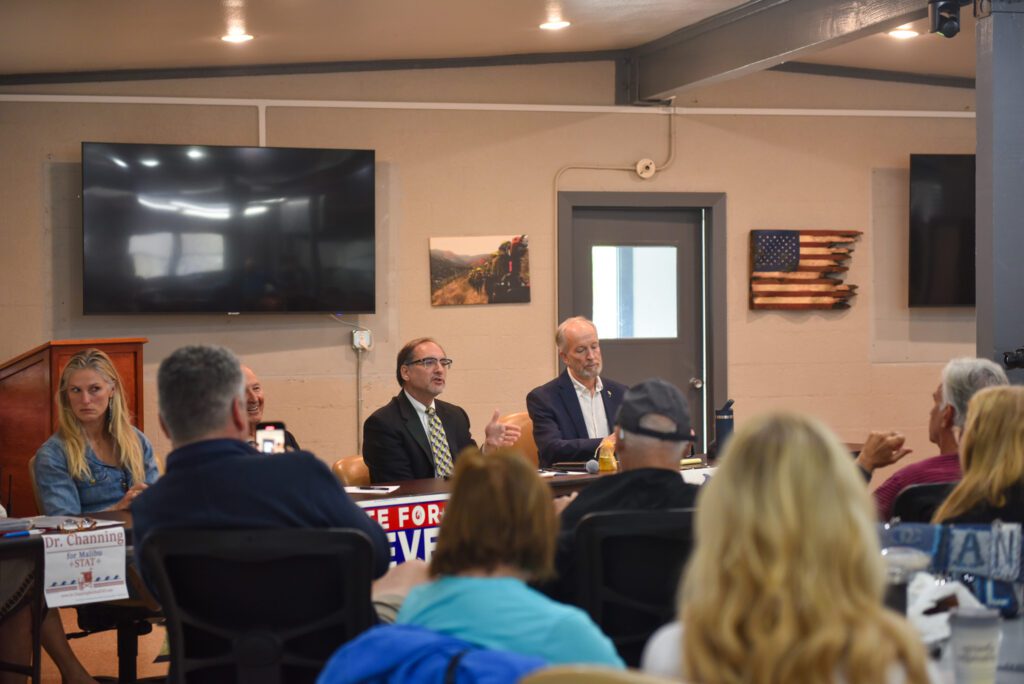
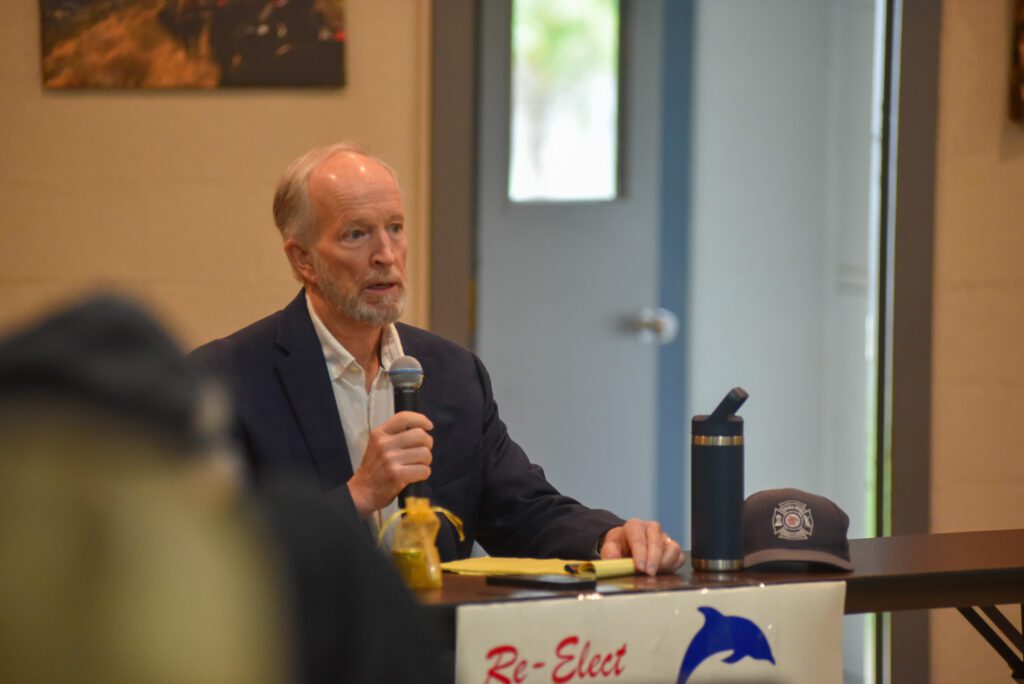
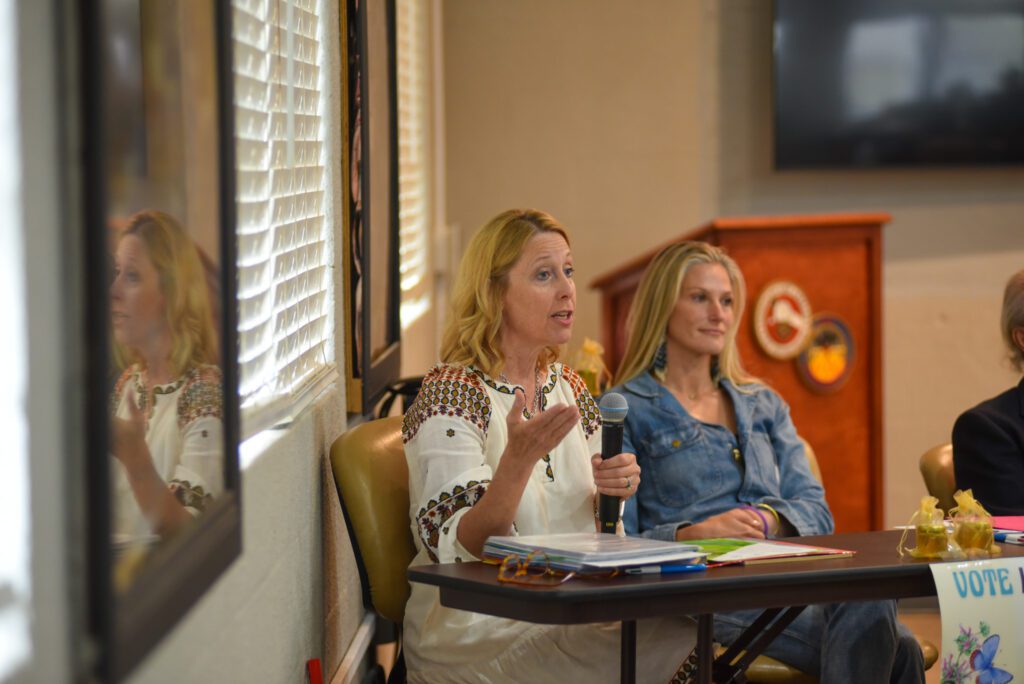
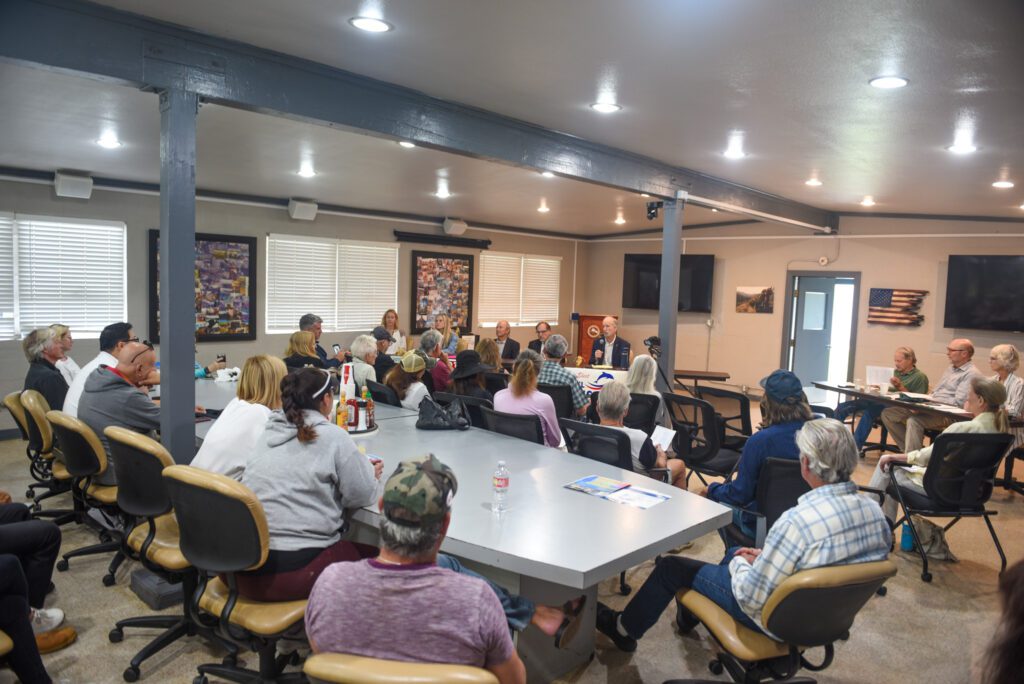
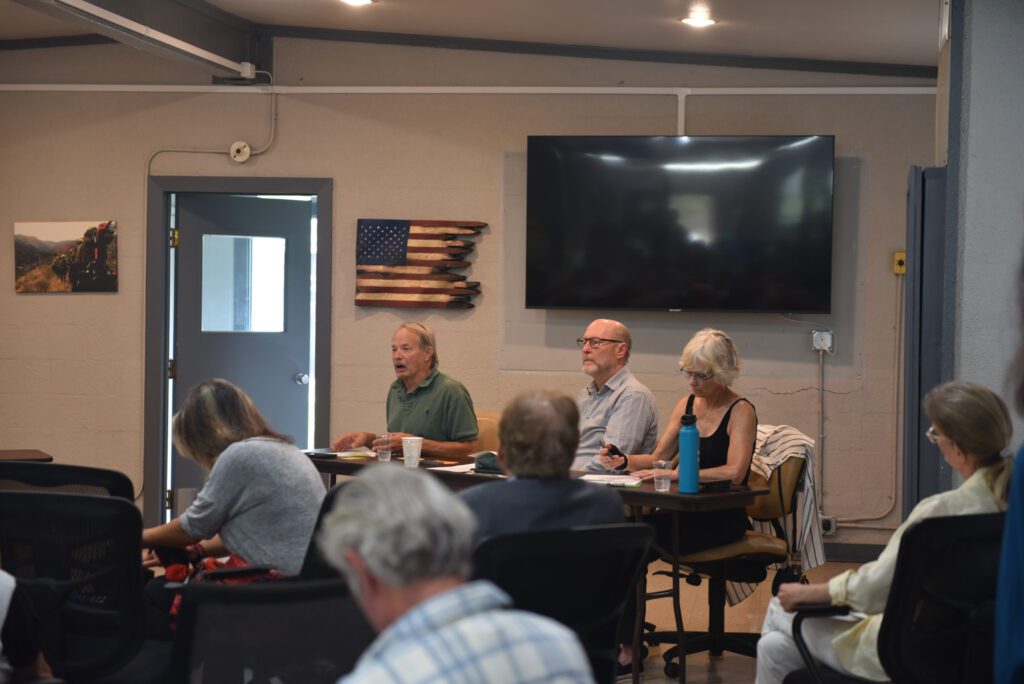
Regarding PCH safety, Councilmember Paul Grisanti said people have driven Malibu’s main artery like it was a“Disneyland ride.” He stated that it’s been difficult to hire more patrols due to the “drastic shortage of Sheriff’s deputies available.” Noting a “change in attitude in Sacramento” since the tragedy on PCH last October, Grisanti said he favors stiffer penalties for driving more than 100 mph. “We need something more severe than taking away their car for a month.”
Newcomer Channing Frykman said, “We’re prioritizing PCH along with the incumbents. This is a shared mission.” Frykman herself was a victim when she was struck by a car in a crosswalk on PCH. Her husband was also hitwhile riding a bicycle in Malibu. The physician said she wants to continue “this positive lifesaving momentum that has been initiated.”
Haylynn Conrad, also a first-time candidate, said as a mother, she spends “a lot of time” driving children on PCH. “We [the City] can decide if we’re a highway or a boulevard,” she said, arguing the former would require eliminating lights and pedestrians. “If we’re a boulevard, we have residents, businesses, bicyclists, pedestrians. Right now, we have the agencies’ ears. Caltrans is actually asking us what we want because this is our neighborhood. We can come up with some really creative ideas that benefit everybody.”
Councilmember Bruce Silverstein called for lower speed limits, more stoplights, and DUI checkpoints on weekends near “Nobu and other drinking establishments.” He added, “Malibu need not and ought not wait for Caltrans to make these changes. We declared a local state of emergency at my urging following the deaths of the four Pepperdine students …Steve Uhring supported my proposal but we were unable to get a third vote from City Council members who are more afraid of the city getting sued than they are afraid of seeing people die. We have two new candidates who both support immediate action. I hope that one of them will be elected in addition to Steve and I, and frankly if the two of them and Steve are elected I’d be thrilled because I support everything they stand for. Paul put a sign on his truck. That’s what he thinks it takes to stop people from speeding on PCH.”
“The biggest difference on PCH is enforcement,” commented incumbent Steve Uhring. “Having the California Highway Patrol and the Sheriff’s, even with speed cameras, you’re going to need enforcement. One of the other problems is pedestrians, visitors who come to the city running across PCH dodging traffic. We have to find a better way to put crosswalks in, stoplights. We don’t want to see anyone get hit. We’re going to have to keep focused on PCH safety every day.”
Regarding additional commercial development Silverstein stated, “If the applicant is legally entitled to do it, then they have to be given the right. It doesn’t matter what I think of their project. If an applicant comes before us with something they’re legally not entitled to do, it doesn’t matter how much I like their project, then they can’t do it. Then there’s the gray zone, which is most things. Commercial development, we don’t need any more. Unless somebody is legally entitled to it or they can demonstrate extreme community benefit there should be no commercial development. Extra-large homes, same thing … We should be encouraging small and medium-sized family homes.”
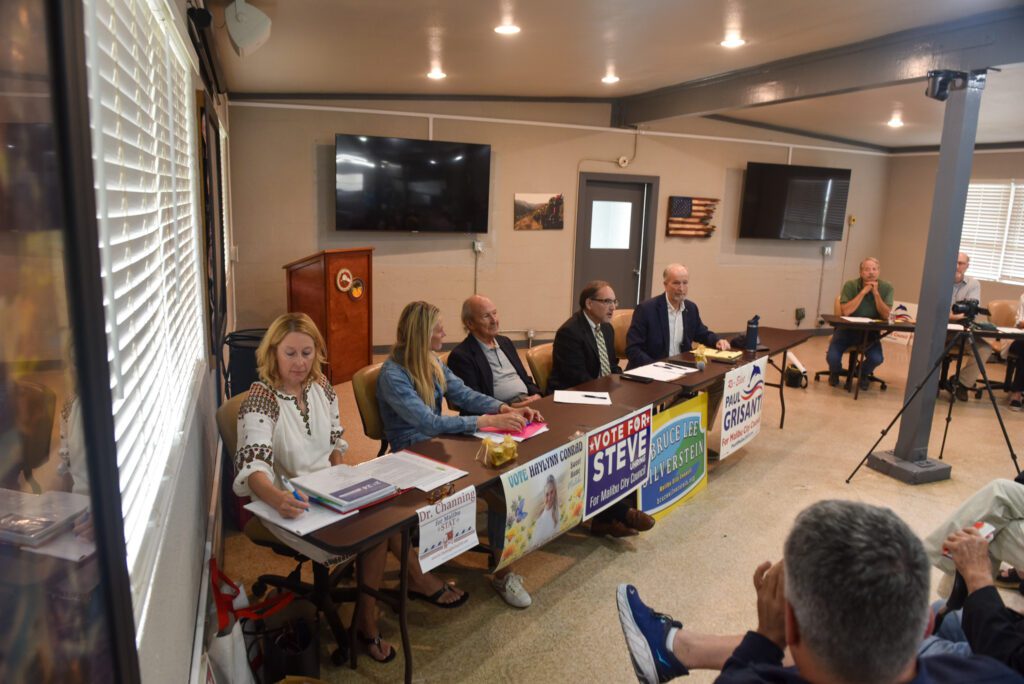
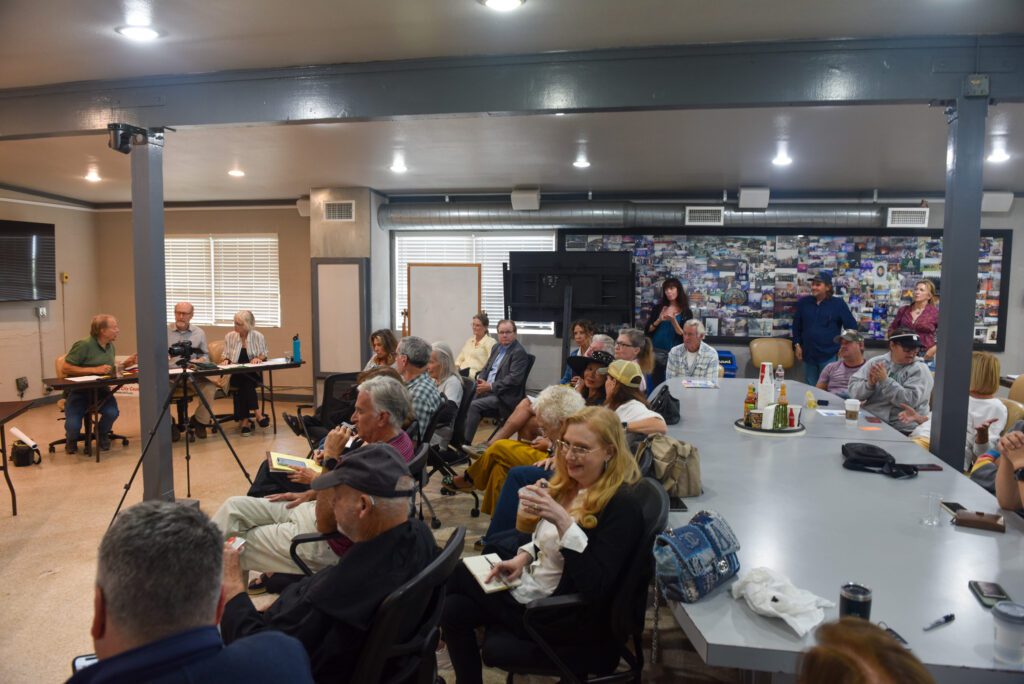
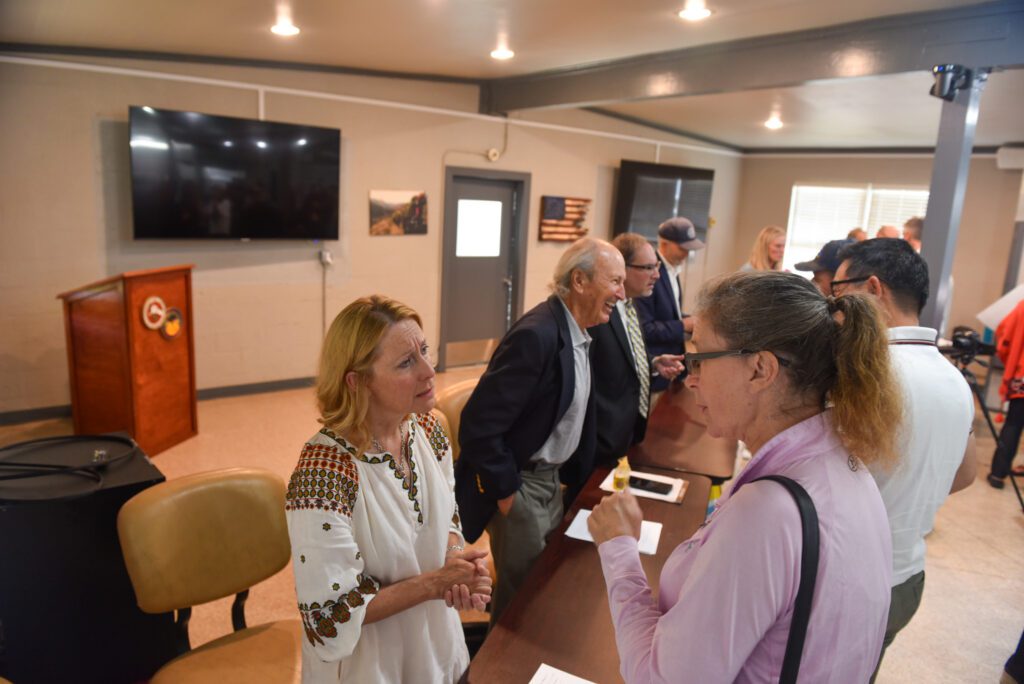
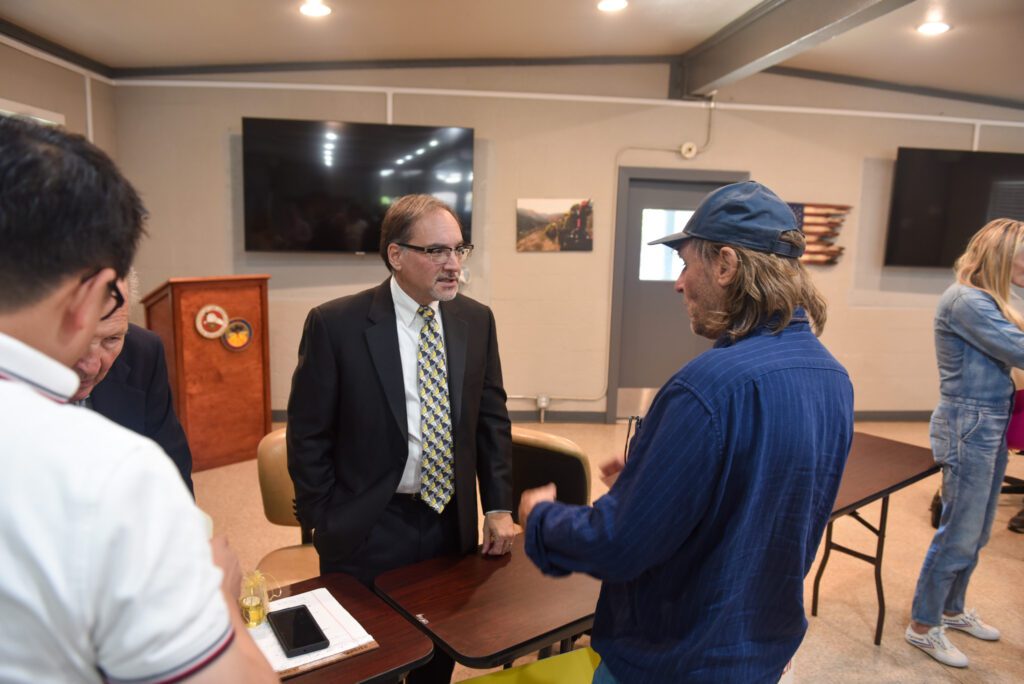
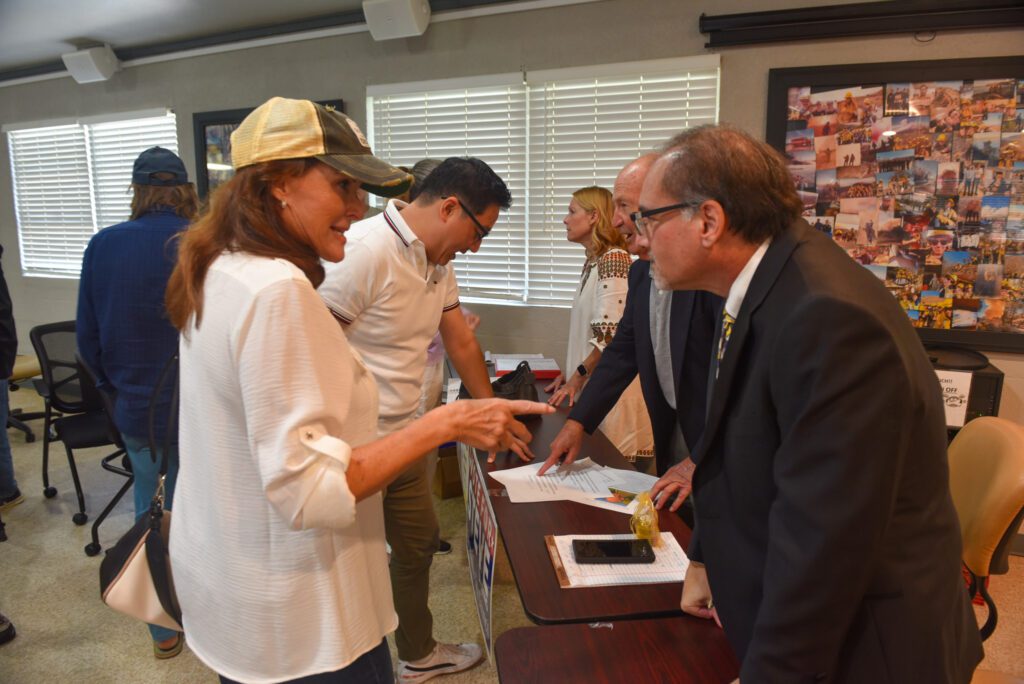
Uhring stated, “I think approximately 125,000 square feet of open commercial space is here in Malibu. I don’t think we need any more. A couple of years ago when I was on the Planning Commission, the City Council tasked us with dealing with mansionization … we did that and then Paul [Grisanti] led the team that tried to stop us. They did mailers to the residents scaring the heck out of them, telling them they were going to lose all their rights, which was not the case. There are things that can be done. There are ways to slow stuff down, allow people to get what they want to get … without changing the character of our city.”
“I think the Planning Department needs to be looked at,” said Conrad. “There could be some improvements with its structures and how it works so we don’t have these conflicts. A lot of our neighborly stuff comes down to the Planning Department. It’s a terrible shame many of the Woolsey victims can’t get homes built. It’s awful. If you’re not doing anything egregious or controversial get it done.”
Conrad said “I don’t understand why it would take seven months,” for a homeowner to get a permit for a generator. As for commercial development, Conrad stated, “I don’t believe we need more retail spaces. We need more community spaces. We need more things to bring community together. We are a pretty divided community, inherently. We have gates, hedges. We want to have a healthy community.”
“I agree with you all,” Frykman said. “It’s such a majestic holy place where we live. It’s a privilege and a responsibility as we steward this absolutely beautiful protected area.”
Frykman said protecting the community is “extremely important.” She advocated for residents to respond to the Malibu Community Lands Project. “For rebuilds, prioritize all of those that were affected by the Woolsey Fire to be able to expedite this process,” she said.
Grisanti brought up short-term rentals (STRs) when beginning his comments on development and the recently rejected hotel proposal in central Malibu. Defending his lone vote to approve the project, he argued that the Coastal Commission “explicitly told us we could not limit STRs because we did not have enough motel or hotel rooms in the city of Malibu. My calculus is, would I rather have 20 STRs ruining the peace and quiet of neighborhoods or would I rather have one motel in one location that is much easier to police? That was my thought on that.”
Defending his opposition to the total development square footage (TDS) limitation proposed by Uhring when on the Planning Commission, Grisanti argued that “the problem with the TDS resolution was they were punishing the older people who have been here a long time in a small house on a big lot by reducing the value of the property that their heirs could receive.” Rejecting the argument that his opposition to TDS limits helped facilitate Malibu’s ongoing mansionization, Grisanti countered that he believed that with his empty nest downsizing, he and Frykman have the two smallest houses of the five candidates.
There were some fireworks as Grisanti and Silverstein sparred regarding development.
Grisanti: “We have a very byzantine process to permit a remodel…it should be okay for somebody to say yes or no right away. What would be attractive to most people is a one-stop meeting where people would hear yes, it has merit and fits with our code, or no, you’re never going to get permits. Our Planning Department is like it is because we have a very hostile group that makes their lives miserable. If there is any way to change that we should try to change that.”
Silverstein: “We have a Planning Commission stacked with a majority of members who make their living on development. We’ve got a majority of City Councilmembers who appointed them and who support that approach. The Planning Department needs to be given direction by a City Council that honors the vision statement and mission statements and stop getting mixed signals. The residents of this town have consistently elected friends of theirs, business people who make money on development. Motives matter.”
“There’s been a majority who are pro-development. How has that worked out for you?” Silverstein asked. “You can elect all the people to my right,” he said, gesturing to candidates Uhring, Conrad and Frykman. “Don’t elect me, don’telect Paul. Paul and the people he appoints to the Planning Commission and the people he’s aligned with are the reasonyou’re seeing dysfunction. … Elect a different majority … what’s happening isn’t working … get rid of the majority that are pro-development.”
Grisanti defended his appointee to the Planning Commission, saying his commissioner has “competence in the subject matter. Our codes are very complex. I appointed a gentleman who attended 11 years of City Council meetings and Planning Commission meetings before I appointed him. He’s smart. He knows codes. He has a contractor’slicense. We had a conflict of interest conversation and I’m confident he has not betrayed any trust. There is no proof he’s done anything wrong.”
“I agree with Bruce,” Uhring stated, adding that he advocates for control on development. Responding to a charge of incivility from Grisanti, Uhring remarked, “I have a track record … If someone wants to know what I believe in, how I vote and how I treat people, it’s there for the public to take a look at.”
